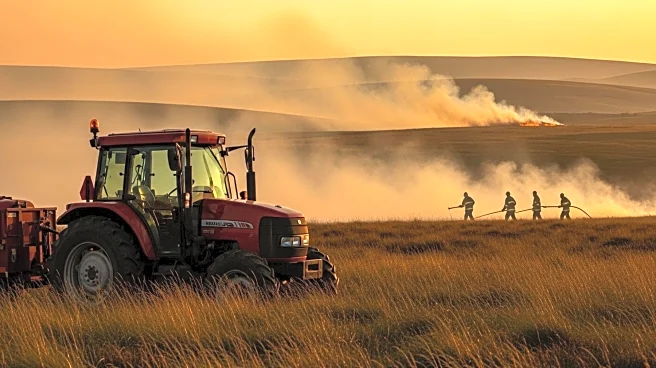What's Happening?
Farmers in the North York Moors have played a crucial role in containing a wildfire on Langdale Moor. The fire, which has been raging for several weeks, prompted the rural community to come together to support firefighting efforts. Farmers have been instrumental in creating firebreaks, beating out fires, and supplying water to the frontline. This incident underscores the broader contributions of farmers as custodians of the countryside, beyond their primary role as food producers. Their involvement in land management and environmental stewardship is vital, especially in times of crisis.
Why It's Important?
The involvement of farmers in managing the Langdale Moor fire highlights their essential role in environmental stewardship and crisis management. This event demonstrates the importance of integrating farmers into broader climate change strategies and land management policies. Their expertise in land management is invaluable, and their contributions can significantly mitigate the impact of natural disasters. Recognizing and supporting farmers in these roles can enhance community resilience and environmental sustainability, bridging the gap between policymakers and rural communities.
What's Next?
The Langdale Moor fire response may prompt policymakers to reconsider the role of farmers in environmental and disaster management strategies. There could be increased advocacy for policies that support farmers in their dual roles as food producers and environmental stewards. This might include initiatives to enhance collaboration between farmers and emergency services, as well as investments in rural infrastructure to better equip communities for future crises. The event may also lead to discussions on how to better integrate farmers into climate change mitigation efforts.
Beyond the Headlines
The Langdale Moor fire response sheds light on the disconnect between farmers and policymakers, emphasizing the need for better communication and collaboration. It raises ethical considerations about the recognition and support of farmers in their multifaceted roles. Long-term, this could lead to cultural shifts in how society values and supports rural communities, potentially influencing public policy and societal attitudes towards environmental stewardship.








